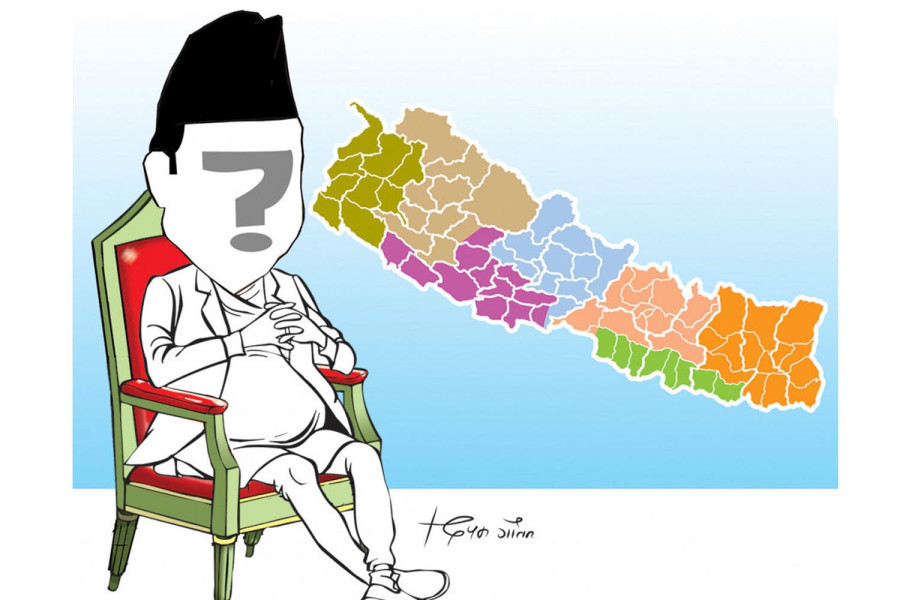Editorial
Not how it works
The undue involvement of province heads and speakers in provincial politics is most troubling.
Nepal’s unitary politics was badly ridden with anomalies. The same can be said about its provincial politics under a federal system today. Political parties and leaders, who endlessly bicker over power sharing, have now started involving province heads and speakers in their plans to unconstitutionally grab power. The emergence of repeated controversies involving speakers and province heads is concerning as the holders of these two positions are expected to play neutral roles in provincial assemblies and governments. The federal system cannot function if province speakers and province heads act as no more than stooges of politicians at the centre.
Cases accusing provincial speakers and province heads of the breach of the constitution are queuing up in the Supreme Court. They are accused of violating the constitution to help leaders from the political parties close to them to form governments. On Sunday, Laxman Kishore Chaudhary of Nagarik Unmukti Party moved the apex court to challenge the appointment of Dirgha Sodari as Sudurpaschim chief minister. Chaudhary accused Province Head Najir Miya of preventing him from becoming chief minister despite him having a clear majority in his favour. A petition against the formation of the Khagaraj Adhikari-led government in Gandaki Province was filed at the top court earlier this month. The case is sub-judice too.
Last year, the role of Speaker in Koshi Province was questioned in the course of forming the Uddhav Thapa-led government. It was challenged in the Supreme Court, which eventually adjudicated the speaker’s involvement as unconstitutional, as the Speaker was involved in the voting process to put together a majority in favour of Thapa of the Nepali Congress. The then CPN-UML challenged the act in the top court. This year, the UML resorted to similar tactics and Congress moved the court against that. The province, as a result, is headed for another bout of constitutional complications. These are representative cases. Similar controversies were seen even in previous years.
No doubt the Supreme Court is the final interpreter of the constitution. While the judiciary’s involvement should be rare and the last resort to arbitrate political issues, Nepal’s court has been routinely invited to settle them. And the politicians often deride the judiciary when the verdicts don’t favour them. The federal government appoints provincial heads. It might seem normal for the federal government to place its representative in the provinces in order to ensure a level of harmony between the two tiers of government. Yet trying to use them as the henchmen of top politicians at the centre is a grave betrayal of the new constitution.
The constitution envisions provincial heads and speakers as neutral positions. The province heads work in a way the President functions at the centre. The constitution has entrusted them with other vital roles as well. It states that in case there is no provincial executive because of the enforcement of federal governance, the provincial head shall exercise the executive power of the province as directed by the federal government. It is the first duty of the province heads and speakers to work as key officials of the state agencies, not as leaders’ yesmen. In order to preserve their sanctity, they should refuse to be top politicians’ partners in crimes. Only if the respective federal actors honestly act out their roles will the system function and the provinces thrive.




 10.12°C Kathmandu
10.12°C Kathmandu













